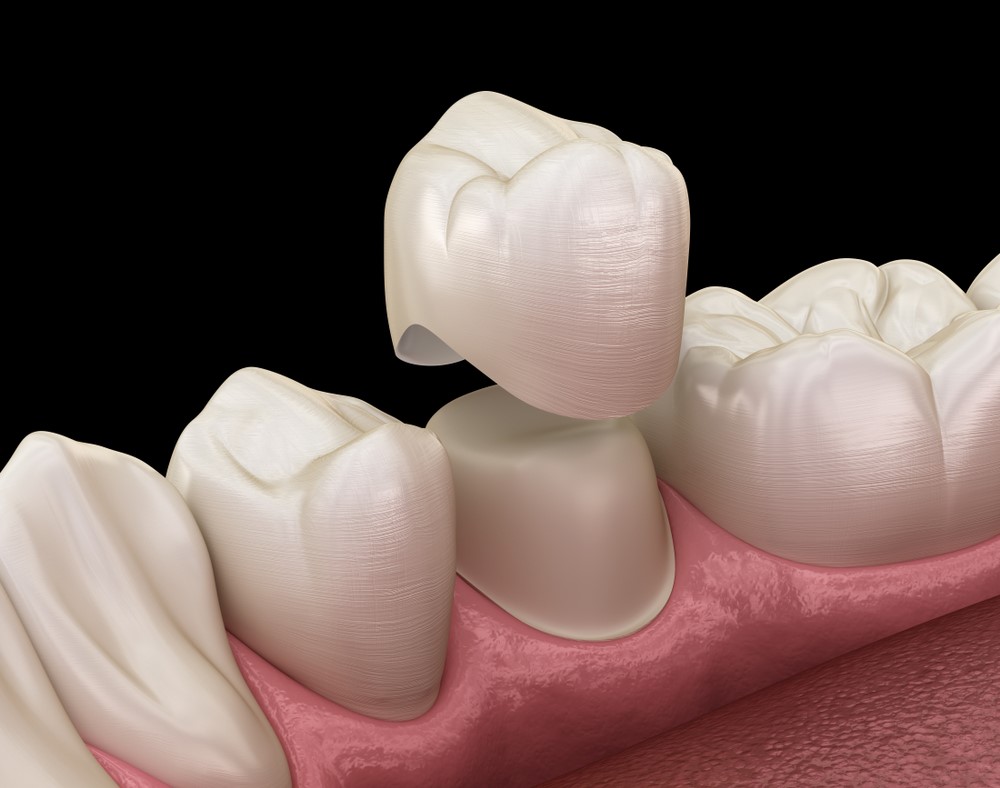How Long Do Dental Crowns Last? The Ultimate Guide
Dental crowns typically last between 10 to 15 years before needing replacement. Dental crowns are durable restorations that protect and strengthen damaged teeth.
They are commonly made from materials such as porcelain, metal, or a combination of the two. With proper oral hygiene and regular dental care, including check-ups and cleanings, dental crowns can provide lasting results, improving both the function and appearance of a tooth.
Regular examinations by a dentist can help identify any issues or signs of wear with a dental crown, ensuring timely replacement if necessary. Overall, dental crowns have a good lifespan and can be an effective solution for restoring and preserving the health of a tooth.
What Are Dental Crowns?
Dental crowns are prosthetic devices that are placed over damaged or decaying teeth to restore their strength, shape, and functionality. They act as a protective cover, encasing the tooth from the gum line upwards. Dental crowns are custom-made to match the color and shape of the patient’s natural teeth, ensuring a seamless and aesthetically pleasing result.
Definition and Purpose of Dental Crowns
Dental crowns are designed to provide support and protection to teeth that are weakened, broken, or severely decayed. They are commonly used to:
- Restore teeth that have undergone root canal treatment
- Repair teeth with extensive damage or fractures
- Improve the appearance of severely discolored or misshapen teeth
- Anchor dental bridges in place
- Protect dental implants
Types of Dental Crowns Available
There are several types of dental crowns available, including:
| Type | Description |
|---|---|
| Metal | Strong and durable, often used for back teeth |
| Porcelain-fused-to-metal | Provides a natural appearance combined with strength |
| All-ceramic | Highly aesthetic, ideal for front teeth |
| Zirconia | Exceptionally strong and long-lasting |
Common Materials Used for Dental Crowns
The common materials used for dental crowns include:
- Metal alloys such as gold, platinum, or palladium
- Porcelain fused to metal
- All-ceramic or all-porcelain
- Zirconia
Dental crowns can restore the functionality and appearance of damaged teeth, providing long-lasting benefits for patients. Regular dental check-ups and good oral hygiene practices are essential to ensure the longevity of dental crowns.
Benefits Of Dental Crowns
Benefits of Dental Crowns
Dental crowns are a popular solution for various dental issues due to their numerous benefits. One of the significant advantages of dental crowns is their ability to enhance appearance and restore confidence. By covering damaged teeth with crowns, individuals can achieve a natural and aesthetically pleasing smile.
Moreover, dental crowns play a crucial role in protecting weak and damaged teeth from further decay or damage. These restorations act as a barrier, preventing harmful bacteria from infiltrating the tooth structure and causing additional problems.
In addition to protection, dental crowns also help in improving functionality and bite alignment. By restoring the shape and size of the tooth, crowns provide stability and enable proper biting and chewing, leading to better overall oral health.
Overall, dental crowns offer a range of benefits, including enhanced appearance, protection against decay, and improved functionality. When properly cared for, dental crowns can last for many years, providing long-lasting benefits and contributing to a healthy and confident smile.
Factors Affecting The Lifespan Of Dental Crowns
When it comes to the lifespan of dental crowns, there are several factors that can affect their longevity. Oral hygiene and maintenance practices play a crucial role in ensuring the durability of dental crowns. It is essential to maintain a regular oral care routine that includes brushing twice a day, flossing daily, and using an antimicrobial mouthwash to prevent any bacterial infection or plaque buildup.
Another factor that can impact the lifespan of dental crowns is the individual’s food habits. Chewy and crunchy foods can put additional stress on the crowns, leading to potential damage or wear over time. It is advisable to avoid excessively hard or sticky foods to prolong the life of dental crowns.
Teeth grinding (bruxism) and clenching can also significantly impact the lifespan of dental crowns. These habits can exert excessive force on the crowns, causing fractures or dislodgement. Wearing a nightguard or undergoing behavioral therapy may be recommended for individuals with bruxism or clenching issues to protect their dental crowns.
Finally, regular dental check-ups and professional cleanings are essential to maintain the integrity of dental crowns. Dentists can detect any potential issues or signs of wear and recommend necessary treatments or adjustments.

Credit: smilestories.co
Lifespan Of Different Types Of Dental Crowns
Porcelain-fused-to-metal Crowns
Dental crowns are a popular solution for restoring damaged or decayed teeth. One type of crown is the porcelain-fused-to-metal (PFM) crown. PFM crowns consist of a metal base that is coated with a layer of porcelain. These crowns provide a strong and natural-looking option for patients.
The lifespan of PFM crowns can vary depending on several factors such as oral hygiene habits, grinding or clenching of the teeth, and the quality of materials used. On average, PFM crowns can last between 10 to 20 years with proper care. However, some patients may experience wear and tear or chipping of the porcelain over time.
To maximize the lifespan of PFM crowns, it is important to practice good oral hygiene, avoid chewing on hard objects, and visit your dentist regularly for check-ups. Your dentist will monitor the condition of your crowns and recommend any necessary repairs or replacements.
All-ceramic Crowns
All-ceramic crowns are another option that provides excellent aesthetics and durability. These crowns are made entirely of ceramic material, eliminating the need for a metal base. This makes them an ideal choice for individuals with metal allergies or those seeking a more natural appearance.
All-ceramic crowns can last between 10 to 15 years with proper care and maintenance. They are highly resistant to staining and chipping, providing a long-lasting solution for patients. Regular dental visits and good oral hygiene practices are essential to ensure the longevity of all-ceramic crowns.
Gold And Metal Alloy Crowns
Gold and metal alloy crowns are known for their exceptional strength and durability. These crowns are composed of a combination of metals, including gold and other metal alloys. They offer excellent longevity and can withstand the forces of chewing and biting.
Gold and metal alloy crowns have a lifespan of approximately 15 to 20 years, but they can last even longer with proper care. These crowns are highly resistant to wear and erosion, making them a reliable choice for patients seeking long-lasting dental restorations.
Zirconia Crowns
Zirconia crowns are a popular choice for individuals looking for both strength and aesthetics. Made from zirconia, a type of ceramic material, these crowns offer exceptional durability and natural-looking results.
The lifespan of zirconia crowns is similar to that of all-ceramic crowns, ranging from 10 to 15 years with proper care. They are highly resistant to chipping, cracking, and staining, providing patients with a reliable option for long-lasting dental restorations.
In summary, the lifespan of dental crowns varies depending on the type of crown and individual factors. However, with proper care and maintenance, most dental crowns can last between 10 to 20 years or more, providing patients with durable and aesthetically pleasing results.
Signs Of Worn-out Or Damaged Dental Crowns
Signs of worn-out or damaged dental crowns can include sensitivity or pain around the crowned tooth, discoloration or chipping of the crown, loose or ill-fitting crowns, and irritation or inflammation of the gums.
Sensitivity or pain around the crowned tooth can indicate that the crown has become worn or damaged. This can be due to natural wear and tear over time or from biting down on hard objects.
Discoloration or chipping of the crown may occur as a result of poor oral hygiene or habits such as teeth grinding. These issues can weaken the crown and lead to further damage.
Loose or ill-fitting crowns may cause discomfort and allow bacteria to enter the area between the crown and the tooth, potentially leading to infection.
Irritation or inflammation of the gums around a dental crown can be a sign of gum disease, which can cause the crown to become loose or fail.
Extending The Lifespan Of Dental Crowns
Proper oral hygiene practices are essential for extending the lifespan of dental crowns. Brushing your teeth at least twice a day with a soft-bristled toothbrush and fluoride toothpaste helps to remove plaque buildup and minimize the risk of tooth decay. Remember to floss daily to clean the areas between your teeth and along the gumline that brushing can’t reach.
If you participate in sports or struggle with teeth grinding, wearing a protective mouthguard can help protect your dental crown from accidental damage. Mouthguards provide a cushioning effect and reduce the risk of fractures or breakages. Additionally, it’s important to avoid habits that can damage the crown, such as biting on hard objects or opening packages with your teeth.
Regular visits to the dentist for check-ups and maintenance are crucial. During these appointments, your dentist will assess the condition of your dental crown, address any issues, and recommend any necessary treatments. They may also clean and polish the crown to maintain its appearance and functionality.
Frequently Asked Questions For How Long Do Dental Crowns Last?
Can Dental Crowns Last A Lifetime?
Dental crowns can last a long time, but not necessarily a lifetime. With proper care and maintenance, they can typically stay in good condition for 10-15 years. However, factors such as oral hygiene, habits like teeth grinding, and the quality of the crown material can affect their lifespan.
Regular dental check-ups can ensure their longevity.
How Do You Know When A Crown Needs To Be Replaced?
A crown needs to be replaced when it becomes loose or falls off, there is discomfort or pain around the crown, the crown appears worn or cracked, there is tooth decay or damage under the crown, or the gum around the crown becomes swollen or infected.
Regular dental check-ups can help identify when a crown needs replacement.
How Often Should Crowns Be Replaced?
Crowns usually last from 5 to 15 years, depending on the material used and oral hygiene.
How Long Do Teeth Last Under A Crown?
Teeth can last a long time under a crown, typically 5 to 15 years or more. It depends on factors like oral hygiene, dental care, and if the tooth has underlying decay or gum disease. Regular dental check-ups and good oral health practices can help prolong the life of a crowned tooth.
Conclusion
Dental crowns are a durable and long-lasting solution for damaged or missing teeth. With proper care and maintenance, they can last for many years. Regular dental check-ups and good oral hygiene practices are essential to ensure the longevity of your dental crowns.
Remember to avoid biting down on hard objects and follow your dentist’s advice for proper care. By prioritizing your oral health, you can expect your dental crowns to serve you well for a significant period of time.




